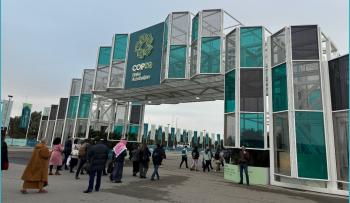
CYCLELOGISTICS ROUNDTABLE: What can governments do for more cycling in urban logistics?
ECF has been invited to steer the cycling recommendations ahead of the Commission’s new urban logistics guidelines. Therefore, we organized a European Round Table on Cyclelogistics to consult key stakeholders from industry, cities, EU MEPs & representatives of the European Commission on how to put more cycling into city logistics.
Why now? Did you know that 50% of motor vehicle trips moving goods in our cities could be switched to bikes? In fact, cycle logistics could help to achieve a number of EU targets - reduce congestion and CO2 emissions, create more sustainable jobs and promote growth and innovation. The ‘Declaration of Luxembourg’, the first-ever EU-wide policy framework for cycling, was recently signed under the Luxembourg Presidency and this was an excellent moment to start getting concrete policies on the ground in order to support cycling. The Round Table on Cycle Logistics in European cities aimed to build on this success by providing clear recommendations on the role of cycling within the new Urban Logistics Guidelines which are currently being processed by the European Commission. With a solid representation of the European Commission (DG Move, DG Environment) and MEP Michael Cramer (Chairman of the Transport Committee at the European Parliament) in the room, concrete examples were presented on how governments at all levels can help develop cycle logistics. Input was based on the collective experience from EU projects (PROEBIKE, CYCLELOGISTICS & CYCLELOGISTICS AHEAD) and best practices from a number of cities and businesses. The message was simple: cycle logistics models already work fantastically in small-scale projects around Europe; centralizing them as good practice examples and promote lessons learnt is the next step. In Motala city in Sweden, e-bikes replaced cars for the delivery of certain municipal services, Lisbon started implementing low emissions zones while the city of Zwolle developed state of the art infrastructure for bikes and e-bikes.
In Zagreb, the Croatian Post bought a fleet of 180 e-bikes to replace equal number of scooters after PRO E BIKE project offered a subsidized e-bike trial period; this resulted in a €492 000 procurement deal. Similar stories can be found in many regions in Europe. The business examples are equally promising, with top delivery company GLS presenting the growth prospective of its new developed cycle delivery services. “The change from car to bike delivery is a successful business model for GLS and of course others. It is not just environmental friendly and cheaper but also makes profits”, said Simone Vicentini, General Director of GLS Enterprise. GLS cycle deliveries in Vincenza are growing in double digits due to the city’s imposed restrictions on motorized vehicles. The diversity of companies represented illustrated the market potential waiting to be unlocked: “In three years we have created 100 full-time jobs and we are growing”, said Hadiel Holail Mohamed from the Belgian company BubblePost. However, as expressed by representatives of the industry – both in services and manufacturing- there is a lot of room for improvement in both culture and regulatory environment in order to make cyclelogistics the new “mainstream”.
The good news? Partly due to the Commission’s aim for CO2-free city logistics by 2050 and partly because of recent political momentum, a window of opportunity is open. “
Since the Luxembourg declaration cyclelogistics appeared as an important transport topic. More pedestrian zones means more access restrictions for deliveries in city centers and cargo bikes are the green and cheap solutions for this development’
said Jochen Maes from ECORYS agency which is in charge of drafting the recommendations on behalf of the EC.
More pictures of the event are available here.
Press requests are to be directed at Elina Baltatzi, ECF Communications Officer, +32 2 808 58 76, e.baltatzi@ecf.com
Network/Project Involved:
- Log in to post comments
Contact the author
Recent news!
Upcoming events
Contact Us
Avenue des Arts, 7-8
Postal address: Rue de la Charité, 22
1210 Brussels, Belgium









